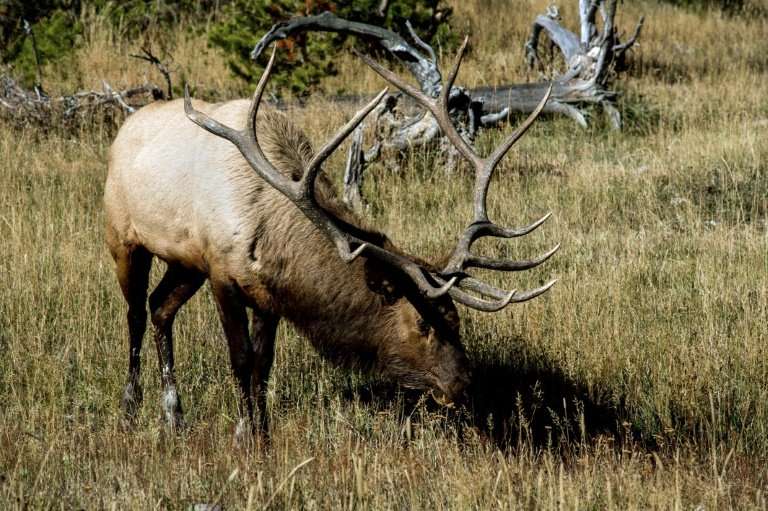US Supreme Court takes on tribal rights, treaties and elk hunting

Does an 1868 treaty protect the rights of Native Americans to hunt on unpopulated federal forest lands?
The US Supreme Court took up that very question Tuesday, as a member of the Crow tribe found guilty for hunting elk across reservation borders and into a federal forest sought to have his conviction overturned.
In January 2014, Clayvin Herrera was hunting with friends on the Crow Reservation in Montana, when they spotted a group of young elk.
They tracked and killed three of the animals, and brought the meat home to their families.
Sticking point: the hunt led them into the Bighorn National Forest in the neighboring state of Wyoming—federal land.
Herrera was convicted in 2016 for hunting illegally and fined more than $8,000. He was also given a one-year suspended sentence and was banned from hunting for three years.
But Herrera's attorneys argue that his conviction violated the Second Treaty of Fort Laramie, signed by the US and the Crow Tribe in 1868, more than 20 years before Wyoming became a state.
That treaty guaranteed the Native Americans the right to hunt on "unoccupied lands," in exchange for ceding some of their territory.
The state of Wyoming says the treaty lapsed when it became a state in 1890, and says it can regulate hunting in Bighorn National Forest.
In the run-up to the hearing, Herrera said he was bracing for "one of the biggest battles I've ever faced in my life."
"The 9 Justices of the Supreme Court will hear my voice, my story, my family, my people, my fellow natives will all be affected," he said on Facebook.
In court, the debate focused on two prior Supreme Court decisions.
The first came in 1896, when the high court said Wyoming's statehood had ended tribal hunting rights by abrogating the treaty.
The second came more than a century later, in 1999, when the court implicitly overturned that very ruling, saying it was based on a false premise.
The case has modern-day relevance as the Crow continue to hunt and fish for sustenance. In the Herrera case, the elk meat was handed out to the entire community.
© 2019 AFP



















